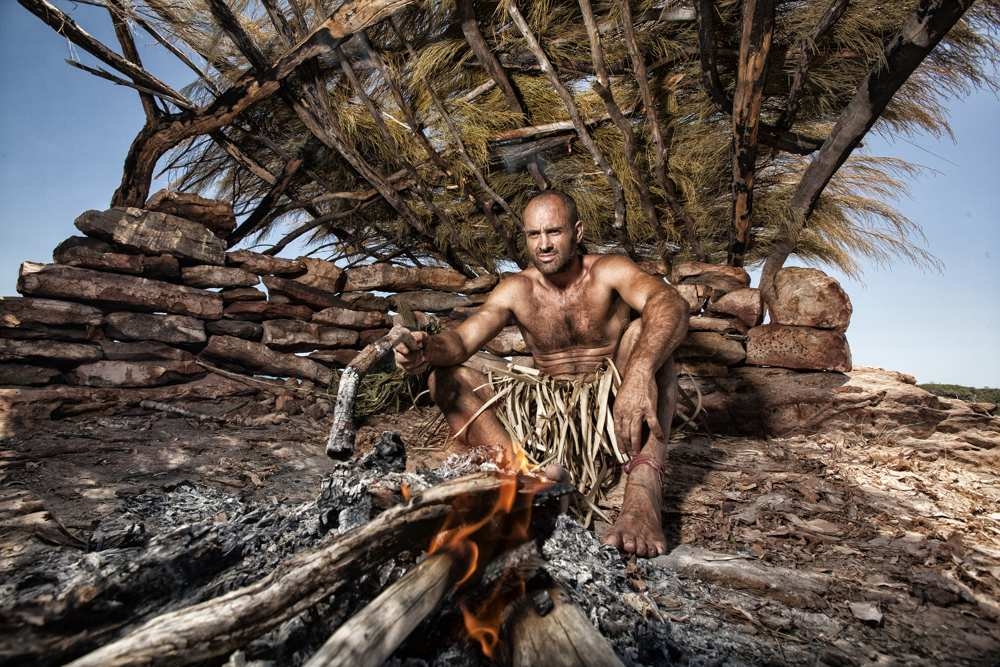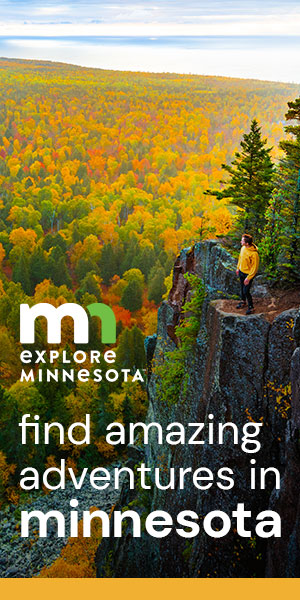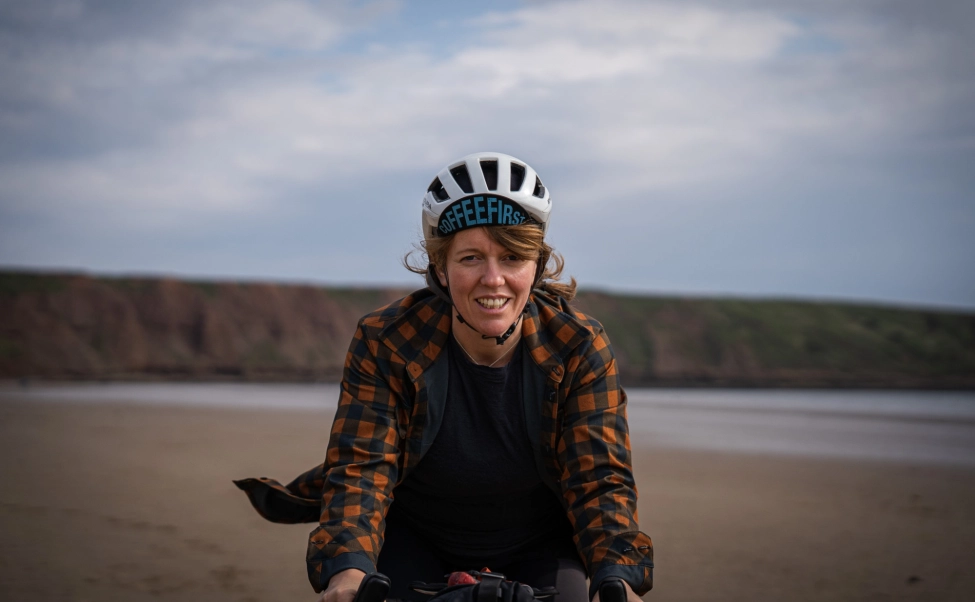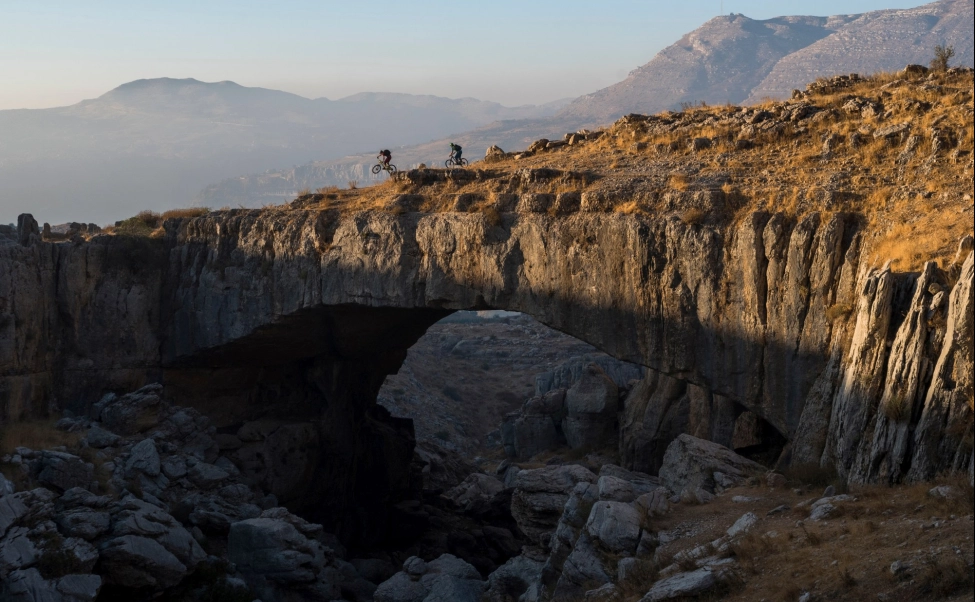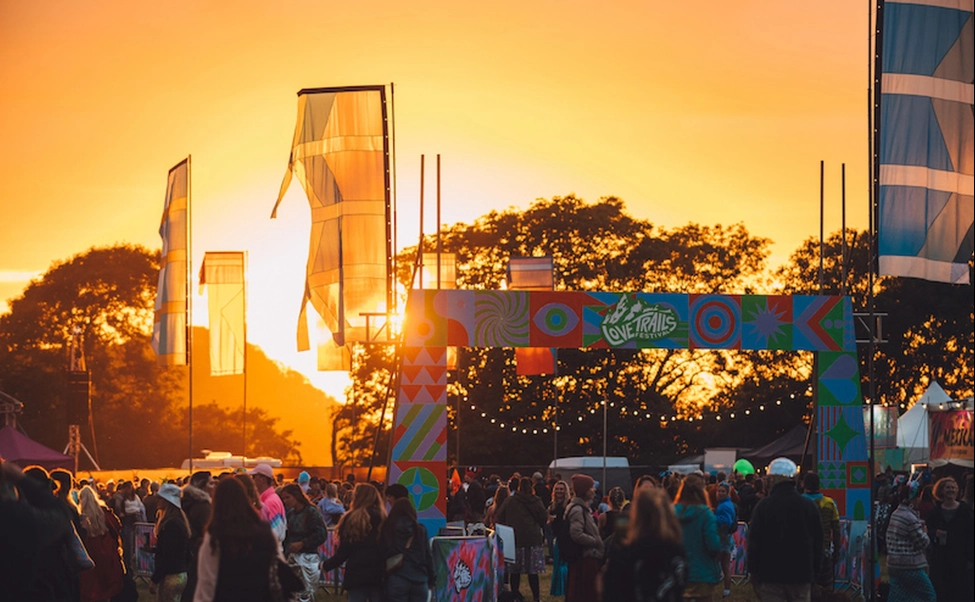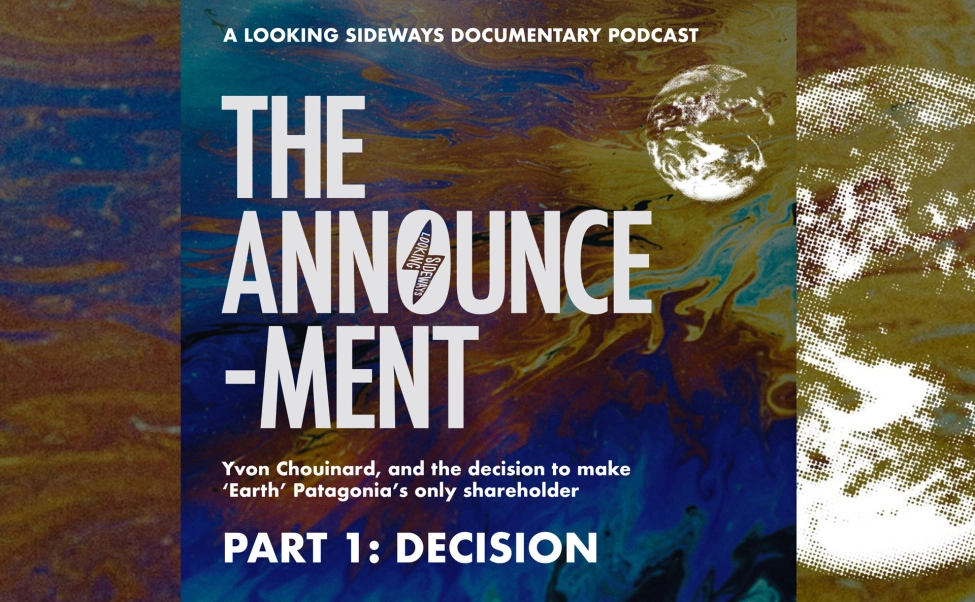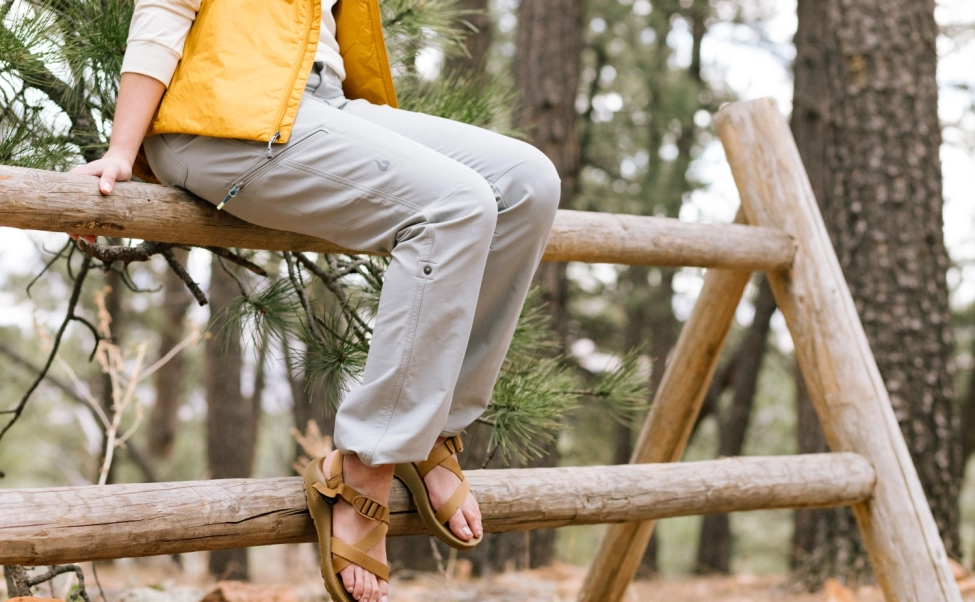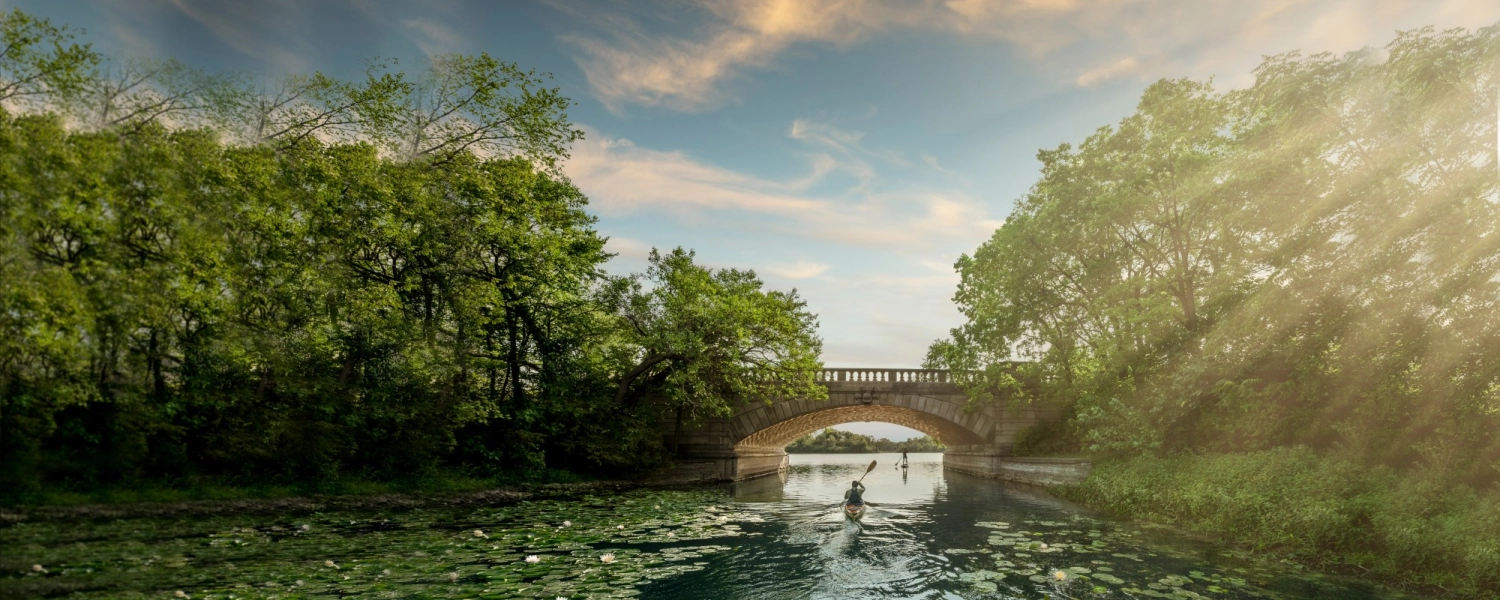- Details
- Written by: Mike Walker
It took the British explorer Ed Stafford two and a half years to walk the length of the Amazon river from the Andes to the Atlantic Ocean. But the minute he walked out of the rain forest in 2010 his feat launched him to fame. Since then he has survived alone on a deserted island for 60 days with no outside help or even clothes, and travelled to remote locations to shed light on some of the world's most baffling secrets... We catch up with the intrepid explorer by satellite phone in deepest, darkest Peru, where he's cycling with fiancée and fellow adventurer Laura Bingham...
Did your love of the outdoors start at an early age?
Absolutely. I was lucky enough to grow up in a little village in the rolling hills of Rutland, so spent most of my time building tree houses, dams and dens. I loved my time in the Scouts too, which is where I learned the basics of how to look after myself.
How do you think being adopted has influenced you?
I had a happy childhood but my adoption is something that I have questioned a lot, especially since walking the Amazon. Only after that did I really start looking for my birth mother. I think the answer is yes. It seems there are so many explorers who were either adopted, or orphaned, or with other traumatic childhoods, and there has been plenty of psychological research to back up how this influences future life choices. But certainly in me it seems to have created a deep insecurity; a hole that was created - albeit pre-memory - by being separated from my birth mother as a baby.
Is it why you chose the life of an explorer?
I think so. This 'hole', this loss, has driven my obsession with proving myself to other people. Obviously I must have had a lot to prove to make me walk for two and a half years through the jungle! But I don't think the determination, the bloody-mindedness that I needed to finish it, would have been there without that formative early trauma.
How well prepared were you for the Amazon trek?
With a trip like this, where you expect to be away for so long it's easy to get overwhelmed. We went way over the top to start with, planning for every eventuality. At one point my pack had crept up to a crazy 47kg. As it was, of course, the journey could be broken down into sections, with plenty of towns with shops, where we could re-supply and restock.
What about health and medical emergencies?
We were so well supported, not least by expedition medicine training experts ExpeMed, who had us putting intravenous lines in each other's arms, chest drains into pig carcases, and tubes into the airways of dead sheep. Thankfully we didn't need hardly any of it - but it certainly gave us some peace of mind knowing what we could handle if we had to.
Did your stint in the army help your adventuring?
The influence of my three years in the army seems to diminish ever year. It was a long time ago now, I suppose, as I joined up during university and then served immediately after. It was a great grounding but I've learned so much since. From a physical endurance point of view it has always been great to have that mental memory bank of situations where I had pushed to the limit in the past - knowing that whatever hardship I was going through now was not as hard.
You're about to head off to Patagonia to film an ad for Heineken. Did you ever imagine such success?
It's incredible really. Sometimes I wake up and have to pinch myself to check that this is really happening.
If I'm honest it wasn't all some romantic notion of heading off on a big adveture just for the sake of it. A guy I used to work with called Bruce Parry was a bit of an inspiration. He filmed a series called Tribe for the BBC where he lived amongst indiginous tribes in the jungles of West Guinea. His example showed me that, through TV, there might be a way to carve out a new direction in the industry I was in - an industry that was otherwise dominated by low-paid expedition work with gap year students and the like.
So it was the trek planned to give you your big break?
It wasn't as specific as that but I was quite aware that if I completed this world first, it would attract a lot of attention and it might help me launch a career. I also knew that meant pulling a lot of elements together so people would take notice - for example, getting professional photography at various points, so that it was more than just a blog with holiday snaps.
Is commercial savvy behind all modern 'adventure'?
Of course, to a point. That said, this was a world first, but no matter how real the adventure, you still have to help nuture and communicate your own 'adventurer myth', the persona and imagery that will make people sit up and take notice.
We funded the Amazon project ourselves, only later selling the film to the Discovery, so the publicity we got for it was beyond anything we could have hoped for. CNN International picked up the story and followed us with live feeds for the last 10 days, broadcasting to some 230 international territories. That was all down to the kindness of one fantastic woman who loved what we were doing and got behind us for nothing.
Did the expedition change your outlook on life?
It did. As ex-military I used to be quite cynical about any kind of wishy washy mumbo jumbo... but we had so much good fortune, so much kindness and help along the way, that I can't help believing there is some kind of universal force for good at work in the world. I now also firmly believe that it you really want something bad enough you can make it happen.
It certainly helped that I had someone as stubborn as me to walk with. Cho (Peruvian explorer Gadiel "Cho" Sánchez Rivera), who walked all but the first three month with me, was never going to give up finishing the challenge either.
Whose idea was Naked and Marooned?
When I came back from the Amazon, there was still that niggling question - maybe that insecurty again - where I felt I still had something to prove. I'd always had someone else with me for help and support - Luke at the start and Cho for the rest of the walk. In some way, this reduced the satisfaction I got from completing it. I needed to prove that I could do it on my own and wanted to set myself a survival challenge that was completely and utterly solo.
You filmed the whole experience yourself too. Why?
As well as being dropped in naked and without any equipment or food supplies on the island it had to be a genuinely solitary experience, with no outside contact. So that meant no film crew at all and having to film the whole thing myself.
How did the challenge compare to walking the Amazon?
It was a nightmare! The walk will always be the hardest thing I have ever achieved but in terms of intensity and mental challenge, the isolation was extraordinarily difficult. Before being dropped on the island I don't think I'd ever spent more than two days and nights completely on my own.
On paper, being dropped off on a tropical desert island where there are no poisonous snakes or animals that can attack you sounds idyllic. Surely you just gather some wood, light a fire, eat some coconuts and everything will be fine. But it turned out to be my toughest test yet.
Has it had a lasting effect on you?
When I got back I had to book myself in for some pychiatric therapy. One of the experts I saw told me to go easy on myself: he explained that there's a reason solitary confinement has been used as a form of torture to break people. "You did this volununtarily," he said. "But don't underestimate the psychological effects of being isolated for that long." Solitary confinement turns your brain to mush. There's too much time for introspection; it's like sitting in front of a giant mirror all day and night with no distractions.
Was it all negative?
Far from it! I wouldn't trade the experience for the world. Although it was incredibly tough - not least because I was trying to film a documentary about myself falling apart, at the same time wondering how the potentially millions of viewers would react to what they were watching.
It played a big role in my own development too. The experience taught me so much about myself. I am now more self-aware, and able to recognise how certain patterns repeat themselves in my mind, and how I react to them emotionally.
Another life-changing experience then?
Definitely. Of course, it was about building shelter, making fire and feeding myself but equally it was about finding comfort in myself. The show was a huge success too, with Discovery going on to film a further eight episodes where they dropped me into a different remote and inhospitable parts of the planet to survive! It's been great fun.
What did your fiancée Laura think about this project?
She thought I was mad. And actually there were times when I was sitting there on my own in the first Marooned, thinking about her back in a comfortable flat in London, when I questioned the sanity of what I was doing too.
Is it true you proposed on the top of an Australian peak? What if she'd said no?
Ha! Yes. As I said, I'm not arrogant but there was never any doubt! We actually met through adventure. She was planning her own expedition, to cycle across South America unsupported, without money, to raise funds for poor Paraguayan children. She got in touch for some advice. I agreed to meet, we got distracted, and the rest is history!
So, if you have kids, who's going to stay at home?
To be honest, it's so hectic right now, sounds like a dream: staying at home to look after kids while Laura goes out and earns all the money. But we'll have to see how it all pans out...
To follow Ed's continuing adventures, see edstafford.org

